Choose the Right Hardwood Floor For You With These Tips
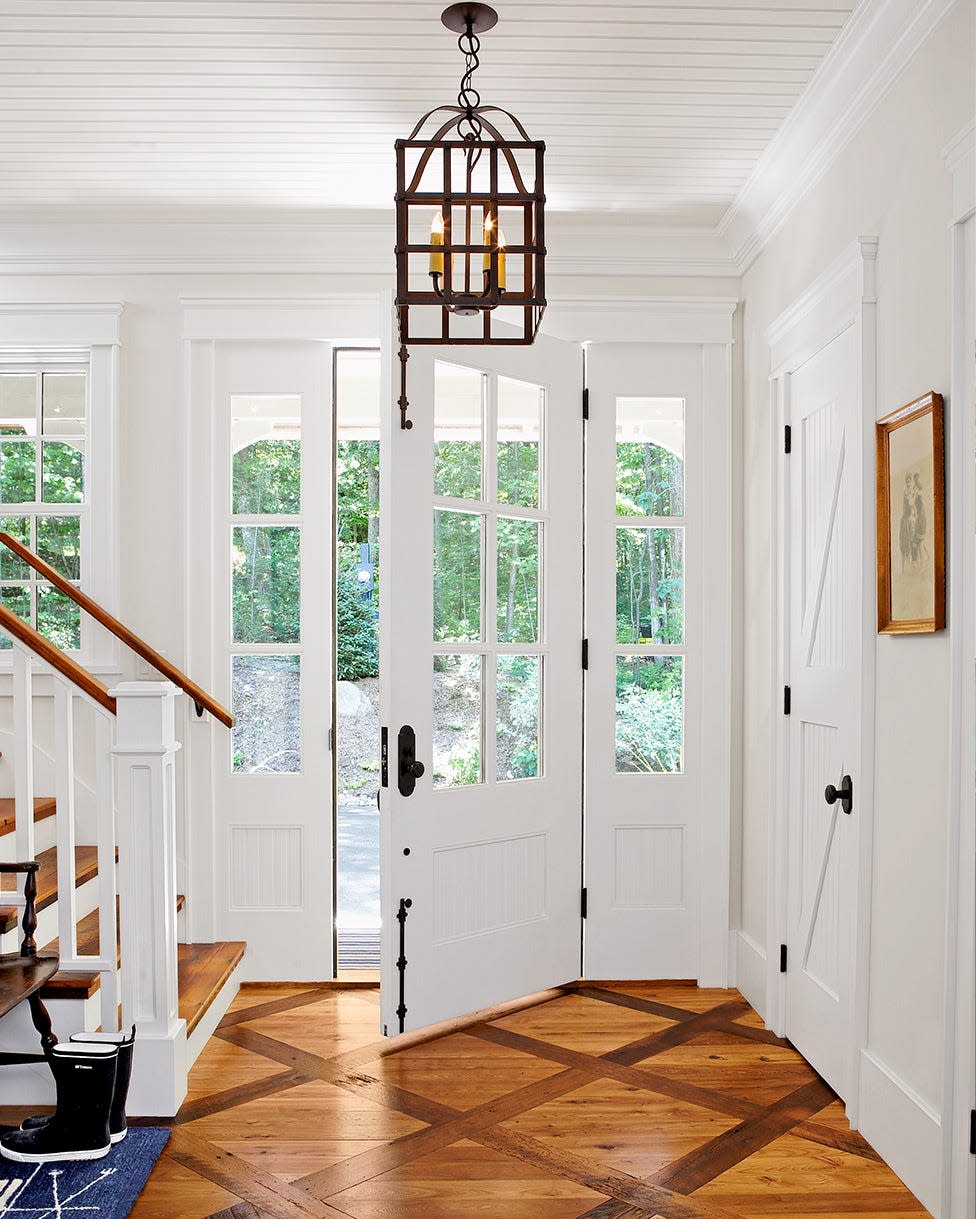
The classic beauty of hardwood floors and their long-lasting durability make them a must-have feature in the booming real estate market and place them at the top of many renovation project to-do lists. But where to start when looking to add wood floors to your home? There’s a wide range of wood flooring options out there and each is uniquely different with it’s own distinct pros and cons. Among the things to consider are looks, durability, and cost.
Below, you’ll learn about the most popular solid hardwood flooring varieties, reclaimed wood options, and engineered and faux wood choices, plus get tips and advice for selecting the right boards for your own building or renovation project—no matter the budget!
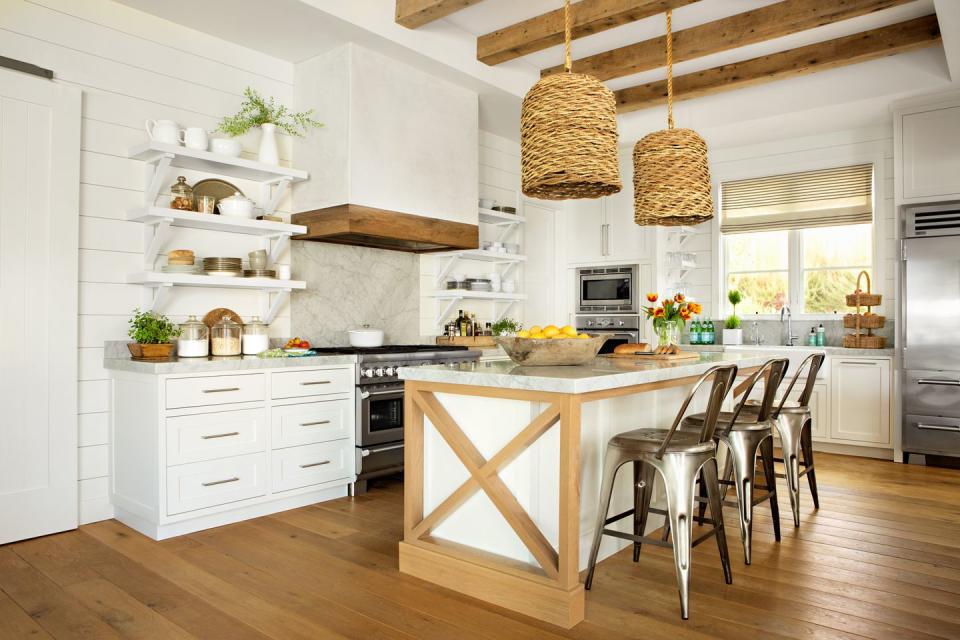
Solid or Engineered?
There are definitely pros and cons to both and the choice really comes down to preference. The preferred choice of designers, solid hardwood flooring can’t be beat for looks, but costs can range from $8 to $25 per square foot, with most homeowners paying on average around $16 per square foot. High-quality engineered wood flooring (made of multiple layers of plywood or high density fiberboard (HDF) that are fused together with a synthetic adhesives) can be similar in price, although laminate flooring is much less.
Solid hardwood floors boast lifespans over 100 years, while more economical engineered wood varieties may last for a little over 30 years. Unfinished sold hardwood can be stained (and sealed!) to match existing wood flooring, and all solid hardwood flooring can be sanded and refinished as desired or needed later. Find out more about both options below.
The Most Popular Solid Hardwood Varieties
Cherry

Cherry hardwood is one of the most popular flooring materials because of its beautiful color and durability. This timber naturally darkens and reddens with age and has beautiful grain and color variations. With a tendency to darken over time, cherry is particularly sensitive to sunlight and can range in colors from pink tan to almost black.
Durability: Cherry dents easily at a 950 on the Janka scale (which measures relative hardness of particular wood species), so limit it to areas like bedrooms and protect with rugs.
Price Point: $11 to $18 per square foot
Hickory
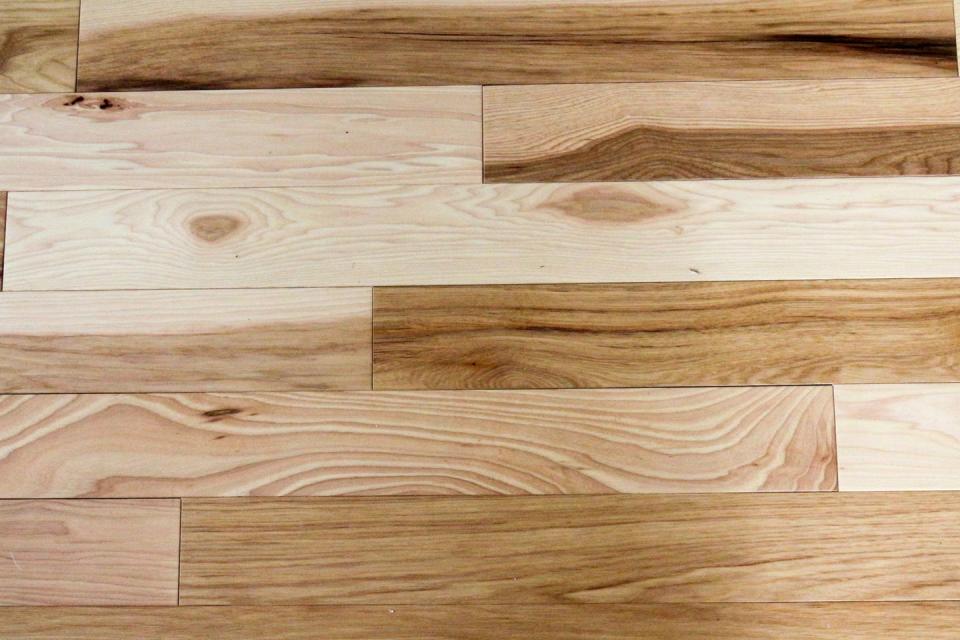
Hickory’s pronounced color variation gives it an instantly rustic look! The material is highly durable and it's a natural choice in homes with a lot of foot traffic. It measure 1820 on the Janka scale and can survive wear from kids, pets, and mishaps involving spilled food or tracking dirt into your home.
Durability: Hickory is less likely to warp in humid conditions than softer woods and great for coastal settings.
Price Point: $10 to $17 per square foot
Maple
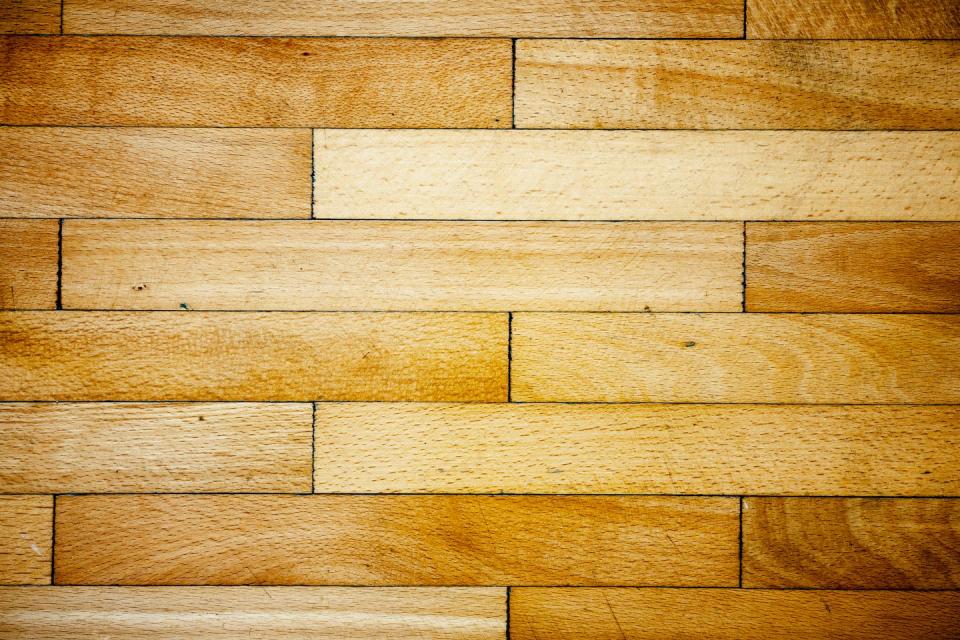
The native North American wood variety has a subtle grain with a tendency to darken and yellow more over an extended period of time. It's highly durable and measures 1450 on the Janka scale. Maple is often used in bowling alleys and other high traffic underfoot areas.
Durability: The closed-grain wood does not absorb stains well and it’s best to stick to just a water-based polyurethane finish.
Price Point: $9 to $16 per square foot
Oak
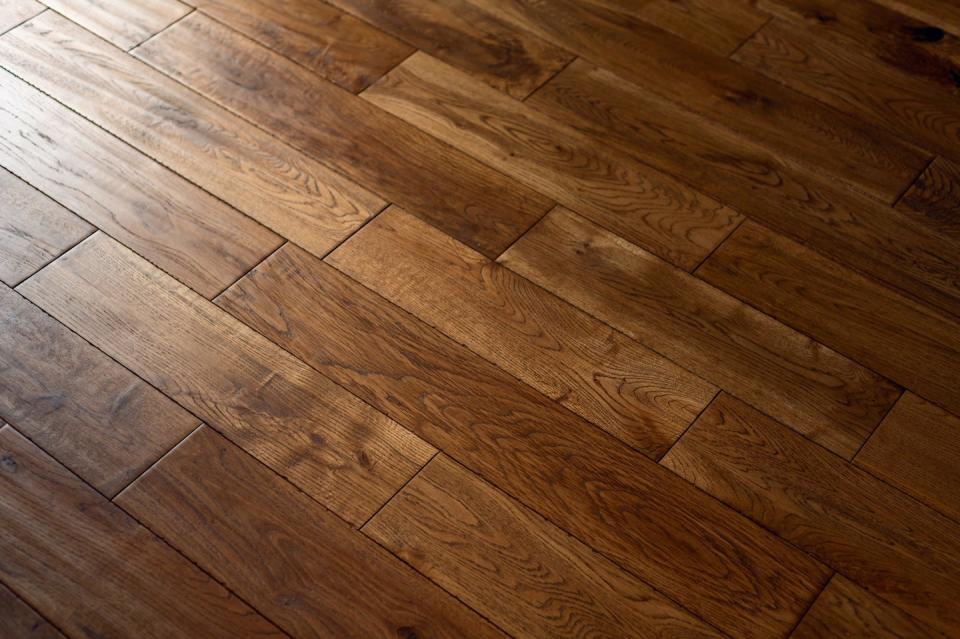
Oak is the most common hardwood used in the U.S. The most popular types among the species include red oak, which has a dark red color with warm undertones, and white oak, which has a golden brown hue. Red oak rings in at a 1290 on the Janka scale (the higher the number, the stronger the board), and white oak comes in at 1360.
Durability: Thanks to the wood’s open grain, wood stains take particularly well and evenly to oak floors. Its high Janka score also indicates oak is a great choice for high-traffic areas of your home.
Price Point: $8 to $15 per square foot
Walnut
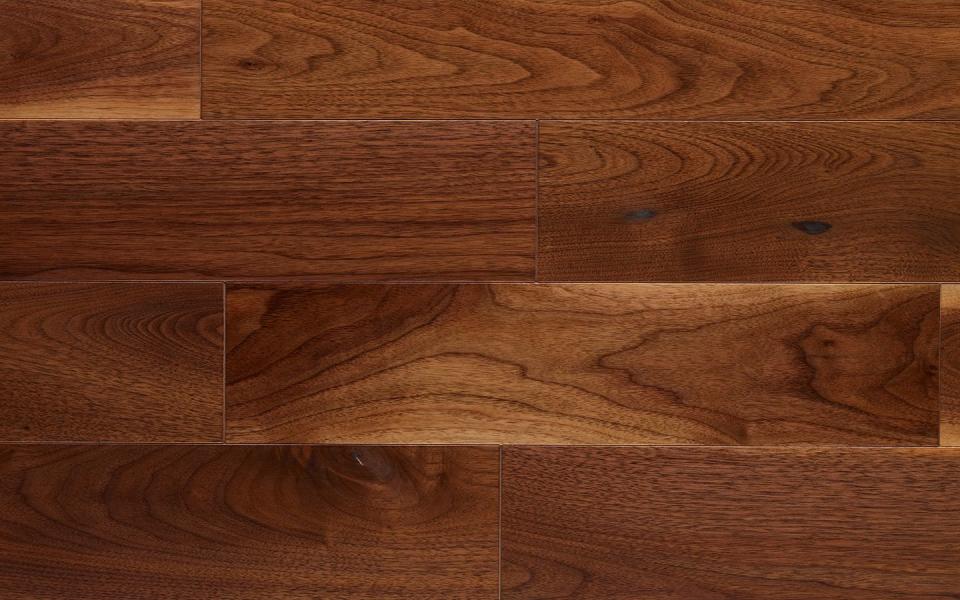
This dark, rich wood has well-defined, mostly straight grain patterns. You’ll often find walnut floors in older homes but it not a good choice for high-traffic areas. It’s highly susceptible to scratches and is easily dented.
Durability: Walnut is a 1010 on the Janka scale. In high-traffic areas, it will show wear after a few years.
Price Point: $12 to $19 per square foot
An Alternative to New Hardwood Floors
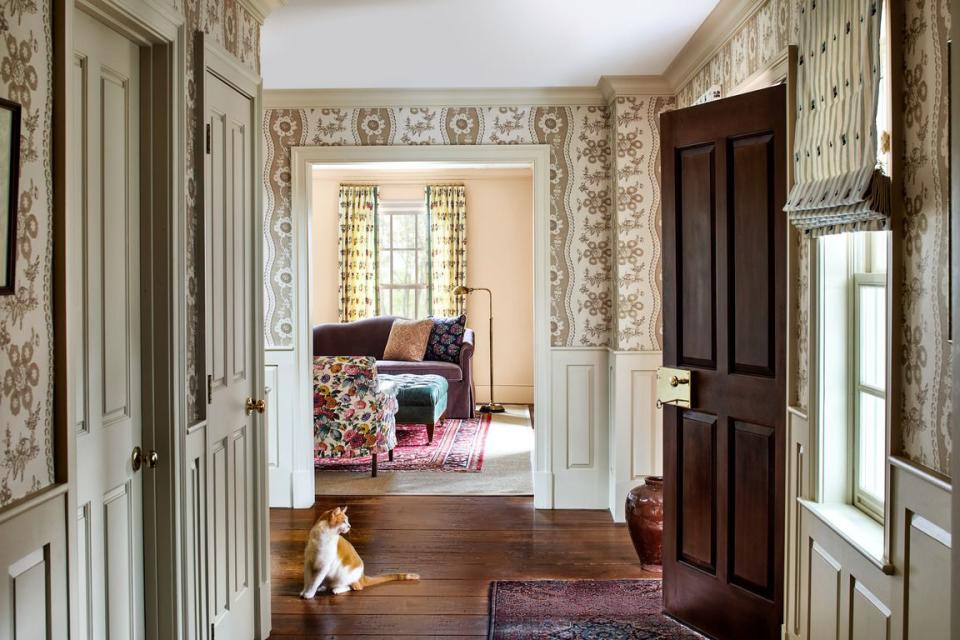
Beautiful reclaimed wood flooring can give even a new build, old soul! There’s a growing demand for sturdy, well-worn, and character-rich boards salvaged from historic homes, barns, factories, and other properties. Repurposed wood can breathe new life and add warmth to nearly any space in your home—from floors and fireplaces to doors and ceilings. It’s also getting much easier to find experienced professional outfitters who specialize in preserving and installing reclaimed wood.
Here are a few of our favorite reclaimed wood specialists:
Box Kite Barn Yard, San Luis, California
Cunningham Lumber, Hillsboro, Texas
Evolutia, Birmingham, Alabama
Antique Beams and Boards, Delta, Ohio
Storied Boards: Lake George, New York
FOR MORE ON RECLAIMED WOOD: Everything You Need to Know About Buying and Using Reclaimed Wood
Engineered and Faux Hardwood Floors
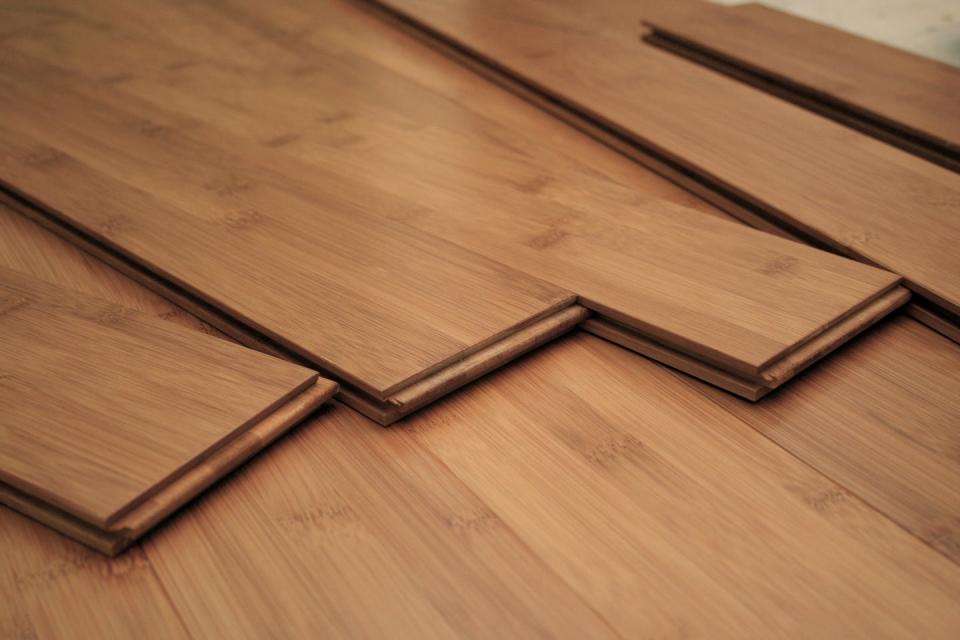
The quality and appearance of non-solid wood flooring is better than ever and there’s a big variety of eco-friendly, durable, and stylish options available. Many of these mimic the look and feel of hardwood floors at much more affordable prices, making them attractive options if you’re working with a conservative remodeling budget. They are also often highly durable, making them good choices for high-traffic areas.
While not as long lasting as solid hardwood, many have life spans up to 30 years (or more) with regular maintenance. Also to note, most engineered wood flooring comes pre-finished, which is great if you don’t want to mess with the hassle, mess, and odor of staining floors. However, on the flip side, pre-finished floors cannot later be sanded and refinished. Here are a few of the most popular types of non-solid hardwood flooring:
Engineered Wood Flooring
Engineered wood flooring is a type of flooring that’s made of multiple layers of plywood or high density fiberboard (HDF) that are fused together with a synthetic adhesives. It’s also available in highly durability options that include a thin top layer of a hardwood species such as hickory, maple, or oak.
Price Point: $7 to $25 per square foot
Laminate Wood Flooring (a.k.a. floating wood tile)
Multiple layers of thinly pressed wood boards are fused onto a fiberboard core and finished with a layer of resin to make laminate wood flooring. Each board is moisture-resistant and works well in bathrooms.
Price Point: $1 to $3.50 per square foot
Bamboo Flooring
Pieces of raw bamboo are dried, shredded, woven together and compressed to make pressed to create each flooring tile. It’s available in horizontal, vertical, and strand woven styles providing lots of style options. Some bamboo planks can imitate the look of true hardwood floors at a fraction of the cost.
Price Point: $1.50 to $11 per square foot for compressed, $7 to $19 per square foot for solid
Cork Flooring
This eco-friendly flooring is constructed from the bark of cork oak trees. It’s a versatile flooring option that is known for reducing noise and providing a comfortable cushion for feet.
Price Point: $3 to $12 per square foot
You Might Also Like


